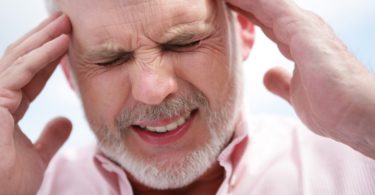Author
Dr Sushrutha K
Assistant Professor, Department of Homoeopathic Pharmacy
Yenepoya Homoeopathic Medical College & Hospital, Yenepoya (Deemed to be University) Naringana, Mangaluru
Introduction
Irritable bowel syndrome (IBS) is a condition mainly diagnosed based upon symptoms. It is characterized by chronic abdominal pain, discomfort, bloating and alteration in bowel habit. Diarrhea and constipation may predominate or it may be alternating diarrhea and constipation.
IBS is a functional gastrointestinal disorder and has no organic cause. It may start after an infection or any stressful event in life. Variation with age has little significance.
Classification
It can be classified as
- Diarrhea predominant (IBS-D)
- Constipation predominant (IBS-C)
- Alternating stool patter (IBS-A)
Signs & symptoms
Primary symptoms of IBS are abdominal discomfort or pain associated with frequent diarrhea or constipation along with change in bowel habits. Sometimes urgency and tenesmus may be present with main symptoms. Abdominal distention or bloating may be relieved by bowel movements. Patients do not lose weight and they will be constitutionally well.
Examination does not reveal any abnormality except tenderness and bloating.
Investigation
- Stool microscopy and culture
- Blood tests- Complete blood count, liver function test, ESR
- Endoscopy and biopsy to exclude peptic ulcer disease, coeliac disease, inflammatory bowel disease and malignancies.
- Hydrogen breath testing to exclude fructose and lactose malabsorption.
Homoeopathic approach
As IBS is a functional disorder rather than organic treatment has better scope with Homoeopathy and lifestyle changes. Patients will be concerned and anxious due to the problem. In this case reassurance along with Homoeopathic medicine.
IBS patients along with medication can undergo lifestyle modifications such as behavioral therapy, Psychological therapy and relaxation therapy.
Homoeopathic medicines such as Argentum nitricum, Asafoetida, Colocynth, Lillium tigrinum, Lycopodium, Nux vomica, Podophyllum will help the patients.
Argentum nitricum
Digestive complaints accompanied by nervousness and anxiety. Bloating, rumbling, nausea, greenish diarrhea which is sudden and intense. Diarrhea immediately after drinking water. Eating sweets and salty food causes problems.
Asafoetida
Whole digestive tract feels constricted especially contractions of intestine calls for this remedy. he abdomen feels inflated, but the person finds it hard to pass gas in either direction to get relief. Constipation brings on griping pains. Diarrhea can be explosive, and the person may even regurgitate food in small amounts.The person may exhibit a strong emotional or “hysterical” element when this remedy is needed.
Colocynthis
It is indicated when cutting pains and cramping occur, making the person bend double or need to lie down and press on the abdomen. Cramps may be felt in the area of the pubic bone. Pain is likely to be worse just before the diarrhea passes, and after eating fruit or drinking water. Problems tend to be aggravated by emotions, especially if indignation or anger has been felt but not expressed.
Lilium tigrinum
This remedy is indicated when a person has frequent unsuccessful efforts to pass stools all day and has sudden diarrhea. Feeling of lump in the rectum, worsened by standing. The person is likely to be depressed and anxious.
Lycopodium
It is indicated when the person is melancholoic and sensitive. Bloating of stomach, sour eructation, little eating causes fullness and great flatulence. The person can have a ravenous appetite, and may even get up in the middle of the night to eat.
Nux vomica
A person who needs this remedy often craves strong spicy foods, alcohol, tobacco, coffee, and other stimulants—and usually feels worse from having them. Abdominal pains and bowel problems accompanied by tension, constricting sensations, chilliness, and irritability can indicate a need for this remedy. Soreness in the muscles of the abdominal wall, as well as painful gas and cramps are common. Firm pressure on the abdomen brings some relief. When constipated, the person has an urge to move the bowels, but only small amounts come out. The person may experience a constant feeling of uneasiness in the rectum. After diarrhea has passed, the pain may be eased for a little while.
Podophyllum
It is indicated when abdominal pain and cramping with a gurgling, sinking, empty feeling are followed by watery, offensive-smelling diarrhea—alternating with constipation, or pasty yellow bowel movements containing mucus. Things tend to be worse in the very early morning, and the person may feel weak and faint or have a headache afterward. Rubbing the abdomen (especially on the right) may help relieve discomfort.
References
- Brian R Walker; Stuart Ralston; Stanley Davidson, Sir, Davidson’s principles and practice of medicine.21stedition, Edinburgh; New York: Churchill Livingstone/Elsevier, 2010.
- Allen.H.C, Allen’s keynotes rearranged and classified with leading remedies of the materia medica and bowel nosodes, 10 th edition,Newdelhi, B.Jain publishers
- Boericke William , Pocket manual of homoeopathic materiamedica and repertory comprising the characteristics and guiding symptoms of all remedies (clinical and pathogenetic) including Indian drugs, 9 th edition, Newdelhi, B.Jain publishers
- Kent .J.T, Lectures On Homoeopathic Materia Medica, New Delhi, B. Jain Publishers





